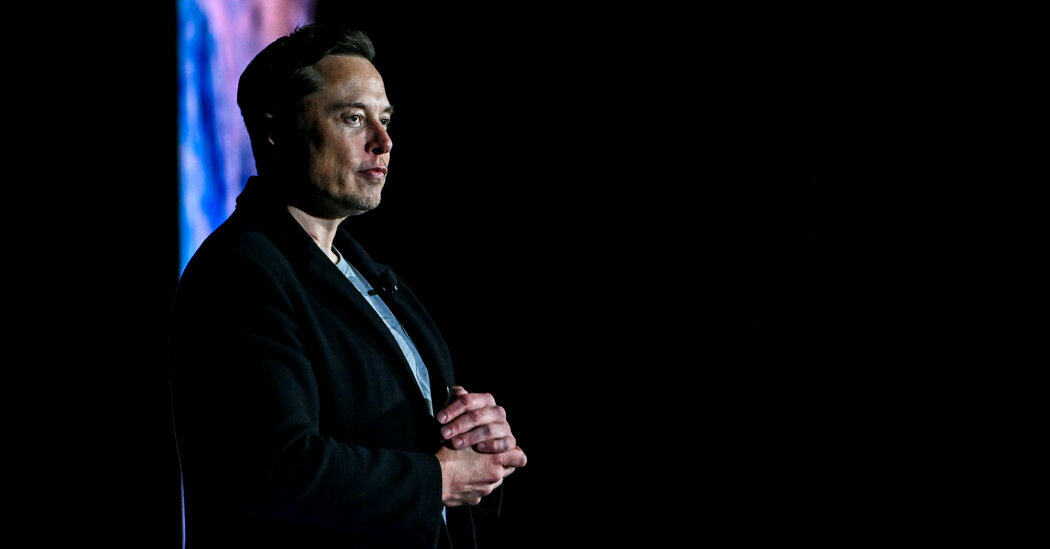
In a 62-page lawsuit filed on Tuesday, Twitter accused Elon Musk of breaching an agreement to buy the social media company for $44 billion. Mr. Musk, the world’s richest man, has tried to back out of the acquisition, citing Twitter’s number of fake accounts and accusing the company of not giving him enough information about the issue and misrepresenting itself.
In its lawsuit, Twitter sought to demonstrate that it has the right to sue him to close the deal and show that Mr. Musk’s claims against it had no merit. Instead, it was Mr. Musk who was violating the agreement, the company said. Twitter was unsparing, calling his escape strategy a “model of hypocrisy” and a “model of bad faith.” It backed up its argument with numerous tweets from the billionaire.
Here are the main points that Twitter made to try to show that it was not in breach of the deal and that Mr. Musk was.
Twitter says it gave Mr. Musk necessary disclosure on spam accounts.
Contrary to Mr. Musk’s claims that Twitter stonewalled his efforts for information on spam accounts, the company said in its lawsuit that it had provided him with data. When Mr. Musk asked for the information, the company honored some of his requests, like handing over its so-called fire hose, or vast stream of tweets.
But even as it did so, Twitter said in its suit, Mr. Musk’s demands for information became progressively irrational.
Read More About Elon Musk and Twitter
“From the outset, defendants’ information requests were designed to try to tank the deal,” according to the lawsuit. “Musk’s increasingly outlandish requests reflect not a genuine examination of Twitter’s processes but a litigation-driven campaign to try to create a record of noncooperation on Twitter’s part.”
Twitter says it did not have a ‘material adverse effect.’
Mr. Musk has argued that Twitter’s public disclosures that about 5 percent of its users are bots are materially misleading, which would constitute a “material adverse effect” under the terms of the deal. Mr. Musk’s contract with Twitter requires that its regulatory disclosures since January be accurate.
But Twitter noted that its regulatory filings had warned that the figures were estimates. (Twitter’s chief executive, Parag Agrawal, has outlined how the company detects and fights spam bots.) Twitter also said the existence of bots was part of the reason that Mr. Musk wanted to buy Twitter.
Twitter says it ran its business as it ordinarily would and kept Mr. Musk updated.
Mr. Musk has said another reason he wanted to pull out of the deal was that Twitter did not operate its business as he expected it would while the acquisition was closing. Among other things, Mr. Musk said, Twitter slowed its hiring and did not give him a heads up before recently firing two executives, which he said breached the terms of the deal contract.
But Twitter said in its lawsuit that its slowdown in hiring aligned with what Mr. Musk had told the company he wanted. The company added that it had notified Mr. Musk’s lawyers of its decision to let go of the two executives and that the lawyers had “raised no objection.” The suit did not say when Mr. Musk’s lawyers were notified of those decisions.
Twitter says Mr. Musk breached the agreement by stopping efforts to close the deal.
Under the terms of the agreement, Mr. Musk must use “reasonable best efforts” to close the deal, including securing debt financing for the $44 billion purchase.
But Twitter said in its lawsuit that Mr. Musk had appeared to abandon efforts to complete his debt financing, contravening the agreement. Furthermore, the company said, he disappeared when Twitter’s executives, including Ned Segal, its chief financial officer, reached out to discuss the figures about spam accounts that Mr. Musk had professed to be concerned about.
Mr. Musk also appeared to get rid of executives who were working to help him close the deal, such as Bob Swan, a former chief executive of Intel, according to the lawsuit. On June 23, Mr. Musk told Twitter that “he had asked Swan ‘to depart the deal proceedings, as we are not on the same wavelength,’” the suit said.
Twitter says Mr. Musk breached the deal terms by disparaging the company.
The deal contract also said Mr. Musk could not disparage Twitter or its employees in tweets. Yet he did so multiple times, Twitter contended, violating the agreement.
The lawsuit included screenshots of a number of Mr. Musk’s tweets, including one that said a lawyer from Twitter had informed him he had violated a nondisclosure agreement. In another, Mr. Musk used a poop emoji in response to a tweet from Mr. Agrawal. In addition, Twitter pointed to Mr. Musk’s comments, on Twitter and at conferences, that publicly doubted the veracity of Twitter’s disclosures of its spam accounts.




